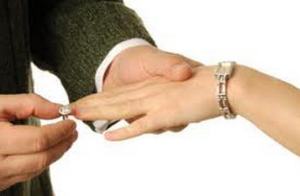I studied literature at university, but poetry was a genre I never managed to get into. Not that I disliked it, but my enjoyment was hindered by the fact that, most of the time, I didn’t understand the imagery nor the symbolism in poems. In the past year or two, however, I’ve been trying to enjoy poetry as a way of learning new ways to express emotions. This week I checked out a Sylvia Plath book from the library, Ariel, which she wrote in October 1962, only months before taking her own life.
I choked when I read A Birthday Present. I read it aloud two, three, four times, taking in each word like a deep in-breath, finding resonance in every turn of phrase. I was left in a flood of tears, wishing to embrace the spirit of Sylvia, in solidarity as a fellow female. It’s generally believed, at the point of writing the poem, Plath had already decided to die, and it certainly makes for grim reading, but her words resonated with me like nothing else I’d read before. (For the complete version click here).
“[…]If you only knew how the veils were killing my days,
To you they are only transparencies, clean air,But my god, the clouds are like cotton.
Armies of them. They are carbon monoxide.[…]Is it impossible for you to let something go and have it go whole?
Must you stamp each piece in purple,
Must you kill what you can?
There is this one thing I want today, and only you can give it to me.[…] Only let down the veil, the veil, the veil.
If it were death
I would admire the deep gravity of it, its timeless eyes.
I would know you were serious.There would be a nobility then, there would be a birthday.
And the knife not carve, but enterPure and clean as the cry of a baby,
And the universe slide from my side.”
I was a total novice to Plath’s work. All I knew was that she’d committed suicide by gassing herself in the kitchen, that her husband, poet Ted Hughes, had left her for another woman, that she had mental health issues from a young age. I’m also aware many blame Hughes for her death. Knowing that his lover Assia Wevill, with whom he had a daughter, also killed herself and the child in a similar manner to Sylvia, and knowing that Hughes had numerous lovers in the meantime, I can’t help but feel sheer rage against a man, whose autocentric behaviour led to the destruction of so many women’s lives. Did he think he had special privileges for being a well-known poet? Or just for being male? Did he see all women as mere objects of his lust? If a poet cannot hold love sacred, what hope is there for the rest of us?
Of course no one really knows what happened within the Plath-Hughes marriage. But as a woman who understands what Plath means when she refers to ‘carbon dioxide’, a silent, lethal grief that kills you slowly yet savagely, I chose to side with her.
In Sylvia’s name, I swore loudly at Hughes: “Bastard!”
Sociopathic relationships
While raging at Hughes and his treatment of women, I was reminded we live at a time when sociopathic behaviour abounds in the area of relationships. This is the era of swiping right or left to indicate whether you like someone or not, when it’s permissible to end a relationship by simply unfriending or blocking someone on social media. One day the relationship is there, the next day it’s gone. There’s even a word for it: ghosting.
No one believes in commitment any more because commitment, they say, spells trouble.
I can almost understand 20-old-somethings behaving this way on the excuse that they haven’t yet learned what a mature relationship is about, but people in their 40s and 50s with half a century’s life experience?!
Dating sites are full of middle-aged men looking for “new friends”, code for no-strings-attached sex friends. There’s nothing wrong in men or women wanting to get laid, if that’s all both parties wish. But I’m sick of feeling like an aberration for insisting on believing in old-fashioned romance and devotion, where partners inspire each other to be better people in order to, together, be greater than the sum of the parts. What happened to, “No matter what happens, we’ll overcome it together.”
Commitment has become such an uncool, taboo word many women refrain from using it in front of a man for fear of rejection. We fear if we honestly ascertain what we want, the man we esteem will leave us and there’ll be no one else for us. The truth is, by not being honest at the outset about what you want, you’ll lose the man anyway but suffer months of degrading humiliation in between.
Misdirected compassion
I’m guilty of it myself. For the longest time I pretended to be okay with outrageously disrespectful behaviours within a toxic relationship with a man I thought was ‘it’. It led me to spiral down and culminate in a nervous breakdown and the worst bout of depression I’ve ever experienced.
What drives me insane is realising I constantly made excuses for his fear of commitment and misogynistic attitudes, looking for traumatic events in his past that would justify his abhorrent treatment of women. I ‘enabled’ him, as you would with an alcoholic. I encouraged the behaviours to continue by tolerating them, and, in the process, I grossly disrespected myself.
In trying to be compassionate towards a broken man, I spurned compassion for myself.
Mind games
It was, using Plath’s words, like carbon monoxide I breathed in slowly, gulp by gulp, slowly annihilating my self-esteem until there was nothing left of my former self. Toxic men have the uncanny ability to continuously behave badly, then turn the blame around on you so it looks like you were at fault, not them. Such insidious mind games can make even a normally sane person feel suicidal over time.
The knife that enters, not carves… Yes, kill me. KILL ME! For killing me would be more merciful than torturing me in this manner.
And yet it was I who abused myself by not laying down boundaries, by not saying “this is not acceptable”. Having survived one abusive marriage, I’m struggling to come to terms with this truth and forgive myself for having allowed such abuse to happen…once again. Was one lesson not enough?
Commitment
In my parents’ generation, people sat down to talk things over, couples believed in fixing what was broken, not giving up at the first crisis. People weren’t deletable; they were more than icons on a computer screen. If you erred, you apologised. You owned up to your behaviours. Couple got married in churches because their promise to honour and respect each other – not an easy one to keep for life – would stand a better chance if placed in a scared context.
Commitment isn’t another word for marriage, which is altogether another story. But it does imply looking after someone you love in good and bad times, caring for their feelings beyond your need for self-gratification. It means thinking twice before doing anything that could hurt another, no matter if you consider it right.
Because loving someone means you do care how your actions will affect them.
The other day a male friend I greatly respect bought me a drink and asked me about my love life. I told him about my broken heart and bemoaned men’s unwillingness to commit. His response was unexpected:
“Commitment is not a dirty word, you know?” he said. “Commitment is good. Don’t be afraid of wanting it. It’s okay. It’s after you commit that the fun starts.”
So it wasn’t my fault. It’s okay, he said, it’s okay. I went home and cried, hugging myself in bed.
“Let down the veil, the veil, the veil.”

